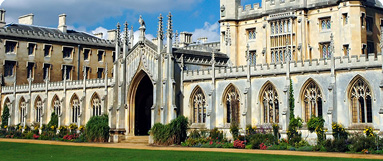It is said that in the years to come, colleges and companies will continue to seek people who have had the education necessary to adapt flexibly to the changing world economy that results from the acceleration of internationalization.
This image of the ideal worker―someone who is cultured, has studied subjects in a wide range of fields, has cultivated diverse perspectives, has logical thinking skills, analytical skills, and the ability to get things done―is the same as that which Liberal Arts colleges strive to nurture as part of their educational policy.
International colleges refer to colleges in Japan that have implemented exactly the same kind of education that is offered at Liberal Arts colleges in the U.S. Such colleges include Waseda University’s School of International Liberal Studies and Sophia University’s Faculty of Liberal Arts, as well as Akita International University, which has been gaining more and more popularity recently.
Furthermore, 13 of the 30 colleges selected as the “Global 30” have recently been increasing the number of classes that are conducted in English; science majors and postgraduate courses are also available. International colleges and Global 30 colleges demand a high level of English proficiency from prospective students, so we recommend that you begin studying for the TOEFL as early as possible.
The primary appeal of international colleges is no doubt the fact that you can take university classes in English while living in Japan. Specifically, international colleges share the following characteristics:
1 In the first and second years, you will study subjects in a wide range of fields, including arts and humanities, social sciences, and natural sciences. Since you have until the end of the second year to choose your major, it is possible to nurture your inquisitive mind, identify problems, and develop the ability to think critically.
2Small-size classes encourage active discussion and interaction between students and professors. Educational support for each individual student is also fully provided.
3English is the common language. By learning and interacting with students from around the world in a single language, English, it is possible to not only improve your English abilities, but also understand various cultures and traditions, thus acquiring the ability to adapt to a global society.
4Since many international colleges have programs which offer students the opportunity to study abroad for one year, students will be able to develop a global perspective by studying at affiliated universities around the world
- Waseda University - School of International Liberal Studies
- Sophia University - Faculty of Liberal Arts (FLA)
- Akita International University (AIU)
- Ritsumeikan Asia Pacific University (APU)
- Hosei University Faculty of Global and Interdisciplinary Studies
- Meiji Gakuin University Department of Global and Transcultural Studies
- International Christian University (ICU)
 Program for Entering International Universities in Japan
Program for Entering International Universities in Japan-
CLOSE
 For Students Living Overseas
For Students Living Overseas-
CLOSE
 What is e-school?
What is e-school?-
CLOSE
 Program for Entering Overseas Universities/
Program for Entering Overseas Universities/
Graduate Schools-
CLOSE
 For Students Living in Japan
For Students Living in Japan-
CLOSE







